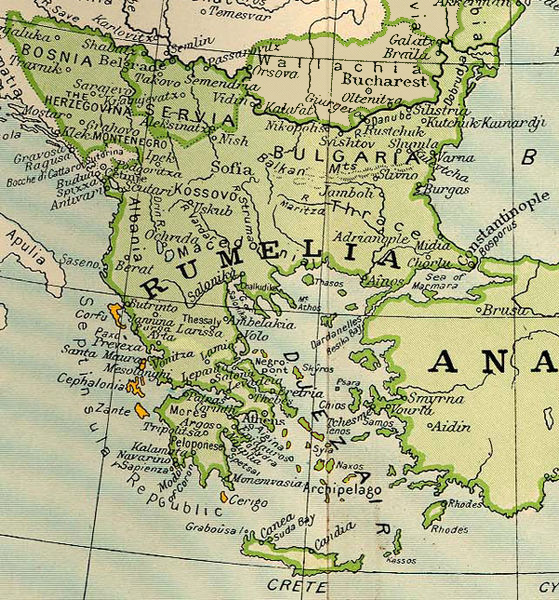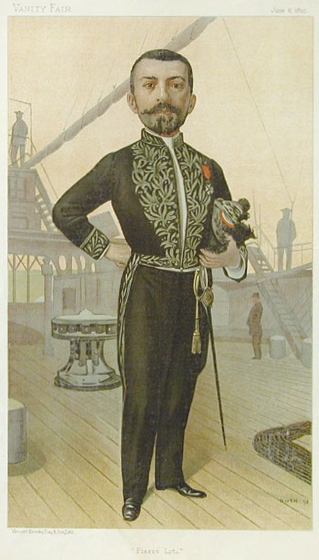|
Abdülhak Şinasi Hisar
Abdülhak Şinasi Hisar (March 14, 1887 in Istanbul – May 3, 1963 in Istanbul) was a Turkish people, Turkish writer. He spent his childhood in Rumeli Hisarı and studied at the Galatasaray High School and later political sciences in Paris. Back to Ottoman Empire, he worked for a French company and later for Stines Mining Company and Regie des Tabacs. He also contributed several publications, including ''Yedigün''. Works * ''Fahim Bey ve Biz'' (1941) * ''Çamlıca’daki Eniştemiz'' (1944) * ''Ali Nizami Bey’in Alafrangalığı ve Şeyhliği'' (1952) * ''Boğaziçi Mehtapları'' (1942) * ''Boğaziçi Yalıları'' (1954) * ''Geçmiş Zaman Köşkleri'' (1956) * ''Geçmiş Zaman Fıkraları'' (1958) * ''Antoloji: Aşk imiş .....'' (1955) * ''İstanbul ve Pierre Loti'' (1958) * ''Yahya Kemal’e Veda'' (1959) * ''Ahmet Haşim : Şiiri ve Hayatı'' (1963) Biographies and information * Orhan Pamuk – ''İstanbul – Hatıralar ve Şehir'', 2003 * Louis Mitler - ''Contempo ... [...More Info...] [...Related Items...] OR: [Wikipedia] [Google] [Baidu] |
Istanbul
Istanbul is the List of largest cities and towns in Turkey, largest city in Turkey, constituting the country's economic, cultural, and historical heart. With Demographics of Istanbul, a population over , it is home to 18% of the Demographics of Turkey, population of Turkey. Istanbul is among the List of European cities by population within city limits, largest cities in Europe and List of cities proper by population, in the world by population. It is a city on two continents; about two-thirds of its population live in Europe and the rest in Asia. Istanbul straddles the Bosphorus—one of the world's busiest waterways—in northwestern Turkey, between the Sea of Marmara and the Black Sea. Its area of is coterminous with Istanbul Province. Istanbul's climate is Mediterranean climate, Mediterranean. The city now known as Istanbul developed to become one of the most significant cities in history. Byzantium was founded on the Sarayburnu promontory by Greek colonisation, Greek col ... [...More Info...] [...Related Items...] OR: [Wikipedia] [Google] [Baidu] |
Turkish People
Turks (), or Turkish people, are the largest Turkic peoples, Turkic ethnic group, comprising the majority of the population of Turkey and Northern Cyprus. They generally speak the various Turkish dialects. In addition, centuries-old Turkish communities in the former Ottoman Empire, ethnic Turkish communities still exist across other former territories of the Ottoman Empire. Article 66 of the Constitution of Turkey defines a ''Turk'' as anyone who is a citizen of the Turkish state. While the legal use of the term ''Turkish'' as it pertains to a citizen of Turkey is different from the term's ethnic definition, the majority of the Turkish population (an estimated 70 to 75 percent) are of Turkish ethnicity. The vast majority of Turks are Sunni Islam, Sunni Muslims, with a notable minority practicing Alevism. The ethnic Turks can therefore be distinguished by a number of cultural and regional variants, but do not function as separate ethnic groups. In particular, the culture of the ... [...More Info...] [...Related Items...] OR: [Wikipedia] [Google] [Baidu] |
Rumeli Hisarı
Rumelia (; ; ) was a historical region in Southeastern Europe that was administered by the Ottoman Empire, roughly corresponding to the Balkans. In its wider sense, it was used to refer to all Ottoman possessions and vassals in Europe. These would later be geopolitically classified as "the Balkans", although Hungary and Moldova are sometimes excluded. In contemporary English sources, Rumelia was known as Turkey in Europe. Etymology '' Rûm'' in this context means 'Roman' and ''ėli'' means 'land', and thus ''Rumelia'' (, ''Rūm-ėli''; Turkish: ''Rumeli'') means 'Land of the Romans' in Ottoman Turkish. It refers to the lands conquered by the Ottoman Empire in the Balkans, most of which formerly belonged to the Byzantine Empire, known by its contemporaries as the Roman Empire. Although the term ''Byzantine Empire'' is used by modern historians, the empire's citizens and emperors called themselves Romans, meaning Greek-speaking Eastern Romans, and embraced a Christian identit ... [...More Info...] [...Related Items...] OR: [Wikipedia] [Google] [Baidu] |
Galatasaray High School
Galatasaray High School (, ), established in Istanbul in 1481, is the oldest and Selective school, highly selective high school in Turkey. It is also the second-oldest Turkish educational institution after Istanbul University, which was established in 1453. The name ''Galatasaray'' means ''Galata Palace'', as the school is located at the far end of Galata, the medieval Republic of Genoa, Genoese enclave above the Golden Horn in what is now the district of Beyoğlu. Admission to Galatasaray High School is determined through nationwide entrance examinations, with successful candidates representing the top 0.03% of students. The institution integrates elements of Turkish language, Turkish and French language, French educational curricula, providing instruction in both languages and upholding a longstanding tradition of academic rigor. The association football club Galatasaray S.K. was formed by and named after the institution, with the footballers in the club's formative years con ... [...More Info...] [...Related Items...] OR: [Wikipedia] [Google] [Baidu] |
Paris
Paris () is the Capital city, capital and List of communes in France with over 20,000 inhabitants, largest city of France. With an estimated population of 2,048,472 residents in January 2025 in an area of more than , Paris is the List of cities in the European Union by population within city limits, fourth-most populous city in the European Union and the List of cities proper by population density, 30th most densely populated city in the world in 2022. Since the 17th century, Paris has been one of the world's major centres of finance, diplomacy, commerce, culture, Fashion capital, fashion, and gastronomy. Because of its leading role in the French art, arts and Science and technology in France, sciences and its early adoption of extensive street lighting, Paris became known as the City of Light in the 19th century. The City of Paris is the centre of the Île-de-France region, or Paris Region, with an official estimated population of 12,271,794 inhabitants in January 2023, or ... [...More Info...] [...Related Items...] OR: [Wikipedia] [Google] [Baidu] |
Ottoman Empire
The Ottoman Empire (), also called the Turkish Empire, was an empire, imperial realm that controlled much of Southeast Europe, West Asia, and North Africa from the 14th to early 20th centuries; it also controlled parts of southeastern Central Europe, between the early 16th and early 18th centuries. The empire emerged from a Anatolian beyliks, ''beylik'', or principality, founded in northwestern Anatolia in by the Turkoman (ethnonym), Turkoman tribal leader Osman I. His successors Ottoman wars in Europe, conquered much of Anatolia and expanded into the Balkans by the mid-14th century, transforming their petty kingdom into a transcontinental empire. The Ottomans ended the Byzantine Empire with the Fall of Constantinople, conquest of Constantinople in 1453 by Mehmed II. With its capital at History of Istanbul#Ottoman Empire, Constantinople (modern-day Istanbul) and control over a significant portion of the Mediterranean Basin, the Ottoman Empire was at the centre of interacti ... [...More Info...] [...Related Items...] OR: [Wikipedia] [Google] [Baidu] |
Regie Des Tabacs
Regie or Régie (from the Latin ''regium'': regal, royal) refers to a public or government establishment, administration, commission or management. They are also common first names in the Francophone world. Transport organisations * ''Regia Autonomă de Transport București'', public transport operator in Bucharest, Romania * ''Regie voor Maritiem Transport'', Belgian ferry company * ''Régie Autonome des Transports Parisiens'' (RATP Group), public transport operator in Paris * ''Régie Nationale des Usines Renault'', organisation in Renault's corporate history * ''Régie des Transports de Marseille'', public transport operator in Marseille * ''Régie du Chemin de Fer Abidjan-Niger'', railway in west Africa * ''Régie intermunicipale du canal de Soulanges'', manages the Soulanges Canal * ''Regie des Chemins de Fer'', History of rail transport in Morocco, historic railway company in Morocco * ''Régie des Chemins de fer du Mali'', railway operator in Mali * ''Régie des Chemins de ... [...More Info...] [...Related Items...] OR: [Wikipedia] [Google] [Baidu] |
Yedigün
''Yedigün'' () was a weekly illustrated general interest magazine which existed between 1933 and 1950 in Istanbul. It was one of the first publications in its category in Turkey. Sedat Simavi, a prominent Turkish journalist, was the founder and editor of the magazine of which the motto was ''Yedigün is the ornament of each home''. History and profile ''Yedigün'' was first published on 15 March 1933, and its founder and editor was Sedat Simavi. Sadri Etem Ertem was the founding publisher and owner of the magazine until 1937 when Simavi acquired it. Ertem designed ''Yedigün'' as a family-oriented magazine, targeting the Westernized elites, intellectuals, the bureaucrats and those living in cities. However, from 1937 ''Yedigün'' began to target youth and young adolescents. Then, the magazine was modeled on the German weekly ''Die Woche'' () and the French magazine ''7 Jour'' (). It was published in broad format and covered both color and black and white pages. ''Yedigün'' beca ... [...More Info...] [...Related Items...] OR: [Wikipedia] [Google] [Baidu] |
Pierre Loti
Pierre Loti (; pseudonym of Louis Marie-Julien Viaud ; 14 January 1850 – 10 June 1923) was a French naval officer and novelist, known for his exotic novels and short stories.This article is derived largely from the ''Encyclopædia Britannica Eleventh Edition'' (1911) article "Pierre Loti" by Edmund Gosse. Unless otherwise referenced, it is the source used throughout, with citations made for specific quotes by Gosse. Biography Born to a Protestant family, Loti's education began in his birthplace, Rochefort, Charente-Maritime. At age 17 he entered the naval school in Brest and studied at Le Borda. He gradually rose in his profession, attaining the rank of captain in 1906. In January 1910 he went on the reserve list. He was in the habit of claiming that he never read books, saying to the Académie française on the day of his introduction (7 April 1892), "''Loti ne sait pas lire''" ("Loti doesn't know how to read"), but testimony from friends proves otherwise, as does his libra ... [...More Info...] [...Related Items...] OR: [Wikipedia] [Google] [Baidu] |
Yahya Kemal
Yahya may refer to: * Yahya (name), a common Arabic male given name * Yahya (Zaragoza), 11th-century ruler of Zaragoza * Yahya of Antioch / Yahya ibn Sa'id al-Antaki / Yaḥya ibn Saʿīd al-Anṭākī, 11th century Christian Arabic historian. * John the Baptist in Islam, also known as Yaḥyā ibn Zakarīyā * Yahya (TV series), 2024 Pakistani television minisries on Geo Entertainment See also * Tepe Yahya Tapeh Yahya () is an archaeological site in Kermān Province, Iran, some south of Kerman city, south of Baft city and 90 km south-west of Jiroft. The easternmost occupation of the Proto-Elamite culture was found there. A regional survey f ..., an archaeological site in Kermān Province, Iran * An ancient culture known as Yahya culture {{disambiguation ... [...More Info...] [...Related Items...] OR: [Wikipedia] [Google] [Baidu] |
Ahmet Haşim
Ahmet Haşim (also written as Ahmed Hâşim; 1887 – 4 June 1933) was an influential Turkish people, Turkish poet of the early 20th century. Biography Ahmed Hâşim was born in Baghdad, probably in the year 1884. His father was the provincial governor of the Ottoman Empire, Ottoman sanjak of Fizan. Around 1893, Ahmed went to Istanbul with his father, following the death of his mother. In 1906, having graduated from the ''Mekteb-i Sultanî'' (now Galatasaray High School), he began work in the ''Reji'', the state tobacco monopoly, and was registered at Istanbul University's school of law. Between 1908 and 1910, Hâşim worked as a French language teacher in the city of İzmir and as an officer in the Office of Public Debts (''Düyun-u Umumiye''). He was Conscription, conscripted in the World War I, First World War, serving mostly in Anatolia; following the war, he returned to Istanbul and worked in the Türkiye Cumhuriyeti Merkez Bankası, Ottoman Bank. After the foundati ... [...More Info...] [...Related Items...] OR: [Wikipedia] [Google] [Baidu] |





